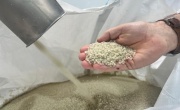BIS should be responsible for waste portfolio says 2020C

Image regarding proposed landfill bans taken from 2020C's 'Sweating our Assets' report
The Department for Business, Innovation and Skills (BIS) should be given responsibility for government’s waste portfolio, a group of Conservative MPs has said, to help ‘redefine waste’ and make sure it’s seen as a business ‘opportunity, not a liability’.
The call comes in the 2020 Conservatives Group’s (2020C) new report, ‘Sweating our Assets’ (to be officially launched tomorrow, 4 February), which outlines an array of ‘productivity policies’ that 2020C believe would put the UK in a better position to ‘deal with the challenges of the 21st century’.
Specifically, the group identifies that, in the future, businesses will be trading in a world ‘where the demand for resources outstrips supply and where the security of that supply is of itself a critical and unstable factor’.
The group says that resource efficiency and protection should be an area of focus for the government, and argued that if the waste portfolio were moved from the Department for Environment, Food and Rural Affairs (Defra) – which has previously stated it will be ‘stepping back’ from waste policy from April 2014 – to BIS, waste ‘would be viewed as an opportunity not a liability, creating new ideas and new businesses’.
Government has to date had a ‘lack of vision and ambition’
Writing in the foreword to the report, Terry Scuoler, CEO of EEF, a manufacturers’ organisation, wrote: ‘Government, policy makers, manufacturers and the wider business community all need to consider a future where the demand for resources outstrips supply and where the security of that supply is of itself a critical and unstable factor…
‘We need a policy framework in place that encourages and supports businesses to drive efficiency through their business models. To date there has been a real lack of vision and ambition and arguably a lack of foresight in identifying the challenges that lie ahead. Other strong manufacturing nations, such as Germany, the US, Japan and South Korea, have grasped the nettle and are preparing themselves. It is now time for the UK to pick up the mantle.’
Scuoler concluded: ‘We have for many years called on government to demonstrate greater leadership in developing a more ambitious and informed vision of resources – its supply, its husbandry and efficiency in its use. By setting the framework conditions, government can unlock infrastructure and services that will be needed in an ever more resource constrained world.’
Report recommendations
In order to protect resources and boost business, 2020C is calling on government to ‘adopt a new approach to economic assessment, building greater economic resilience and putting productivity and profitability centre stage’.
The report outlines that this can be done if government:
- establishes ‘profitability metrics’ to measure the profitability of the economy to ensure it does not ‘solely base decisions on top line growth metrics’;
- focuses on ‘supporting companies to achieve higher margins’;
- establishes ‘resource productivity and efficiency metrics’ so that resource productivity is reported ‘more effectively’ and that labour productivity is not used as a ‘proxy for total factor productivity’;
- supports the formation of demand reduction policies, which would ‘drive greater utilisation of resources and reduce the exposure of businesses to expensive resources’;
- extends Enhanced Capital Allowances from energy to resource efficiency and productivity measures and equipment, renames it the ‘Efficiency and Productivity Allowance’ and publicises it ‘far more extensively’;
- recognises the reuse and remanufacturing sectors as ‘important commercial opportunities’;
- redefines waste as a ‘business opportunity’;
- renames waste policy to ‘resources policy’ and moves the responsibility from Defra to BIS;
- enables local authorities that ‘retrieve and resell their waste effectively’ to offer the taxpayer a rebate, thus creating an incentive for ‘increased, better-quality and targeted recycling’; and
- introduces a landfill ban on plastics, wood, textiles, and food to avoid around £1 billion in landfill costs and recoup £2.5 billion worth of materials for reuse.
Laura Sandys MP, Chair of 2020C’s Productivity and Efficiency Group, said: “Normally productivity means focusing on labour productivity, but this report rebalances the debate from labour productivity to resource productivity. In addition, it calls support for a new growing business sector called ‘ReMade in Britain’ – thereby ensuring that resources are regarded as assets with a second and third life.”
Sandys argued that by ‘becoming more resource efficient, more productive and resource resilient’, the UK could not only save billions of pounds, but also enable manufacturers to see a 12 per cent increase in profits per annum and create around 300,000 jobs in the remanufacturing sector.
Resource efficiency could ‘unlock enormous potential’
The report has been welcomed by several members of the manufacturing industry, with Dr Michael Pitts from the Technology Strategy Board saying: “We see a pent up demand from business to move to circular business models to increase resilience to resource supply volatility and to create new customer benefits. This report provides excellent recommendations that could help accelerate the take up of this considerable business opportunity.”
Those in the waste and resources sector have also backed the report, with Dee Moloney, CEO of environmental consultancy firm LRS Consultancy (which contributed to the report), stating: “If businesses can start to work differently by looking at productivity, profitability and resource use and viewing waste as a resource rather than a problem, then the UK could unlock enormous potential and could become a world leader in the development of a successful circular economy.”
Matthew Farrow, Executive Director of The Environmental Industries Commission (EIC) added: “Laura Sandys MP and her team are to be congratulated in producing such a clear report on the benefits of resource efficiency and rooting it in the debate about the future of the UK economy.
“The ‘circular economy’ is a real business opportunity but needs clear policy to enable it. The focus on total factor productivity rather than labour productivity is spot on, though employment creation is also a key metric as we must avoid a high productivity/low employment economy.”
Although agreeing with the majority of 2020C’s recommendations, Farrow warned that moving the waste and resources policy to BIS would “still require close involvement by Defra as the regulation of waste to minimise environmental risks remains vital”. He also suggested that landfill bans should only be developed if they can be enforced if ‘in a cost-effective manner’.
Commenting on behalf of the Resource Association, Chairman Andy Doran, who participated in the work of the group said: "I welcome the report's strong focus on the role of reprocessing and remanufacturing as engines of growth in the emerging resources-based circular economy and congratulate Laura Sandys MP and colleagues on placing these issues on the political centre stage.
"The emphasis on ‘ReMade in Britain’ as a rallying call for a new business sector is important, alongside practical policy proposals to support industry such as extending Enhanced Capital Allowances. Together with the focus on profitability, they send a clear signal that industry is ready to respond to clear long-term policy signals from Government. We hope that the Chancellor takes time to read this report and act!"
Chief Executive Ray Georgeson added: "It is notable that the report recommends landfill bans for key materials in the interests of resource security. We support this in principle, but emphasise that they will only be effective if combined with the sort of industry measures proposed in the report to boost end-market development and also combined with caps on key materials going to incineration. Without this, the jobs multiplier value inherent in more reuse, remanufacturing and reprocessing will be constrained."
"We also support the structural change in policy lead proposed, from Defra to BIS, as an important indicator of the future role of the resources industry. This however should not be a distraction from the urgent need to deliver policy improvements now that help us realise the value we waste in resources. I hope this report is a catalyst for change."
The report will be officially launched tomorrow (4 February) at 2pm at Portcullis House.
Read more about 2020C.




